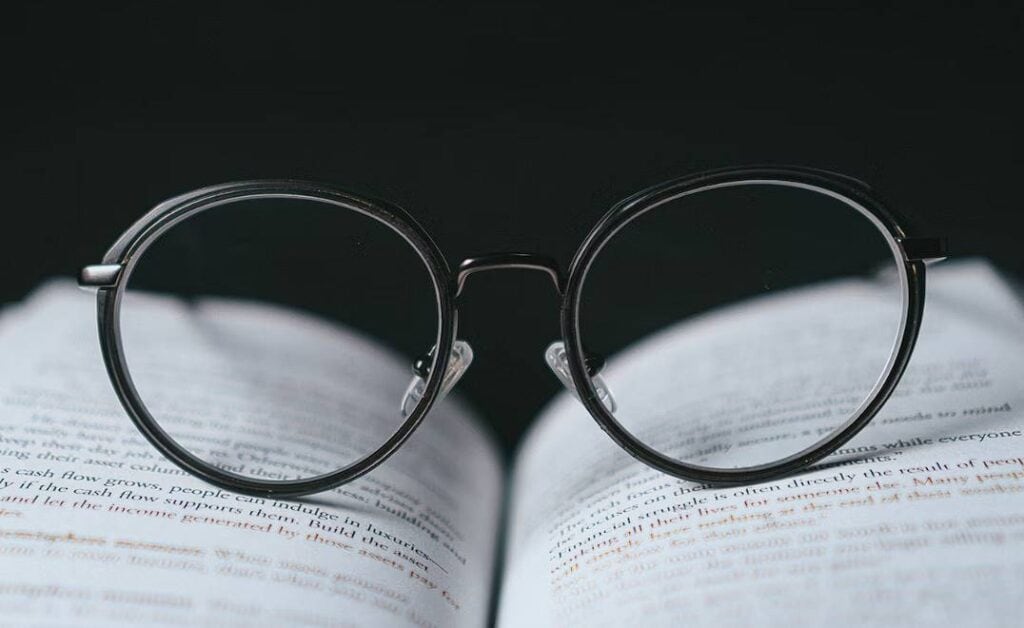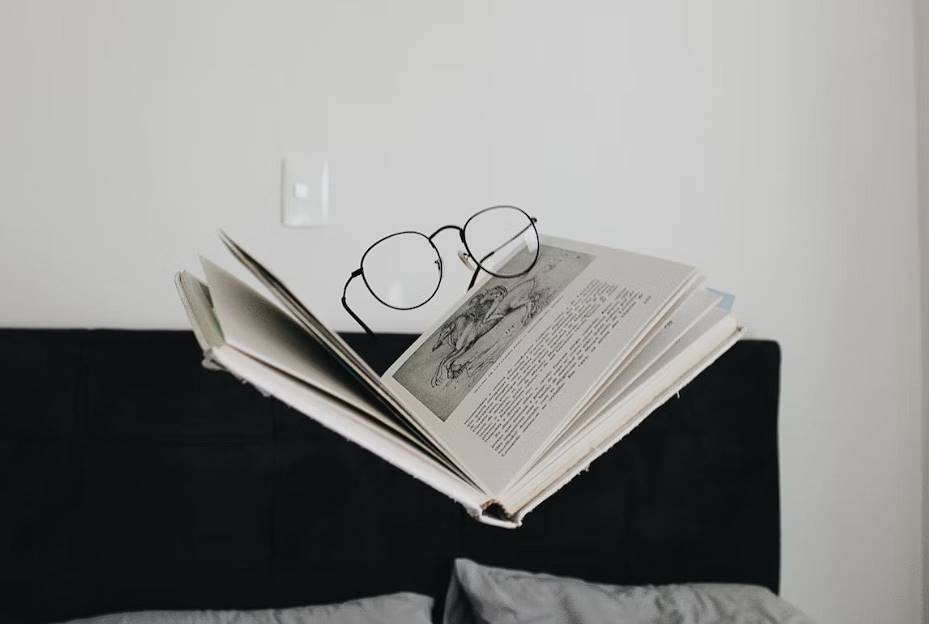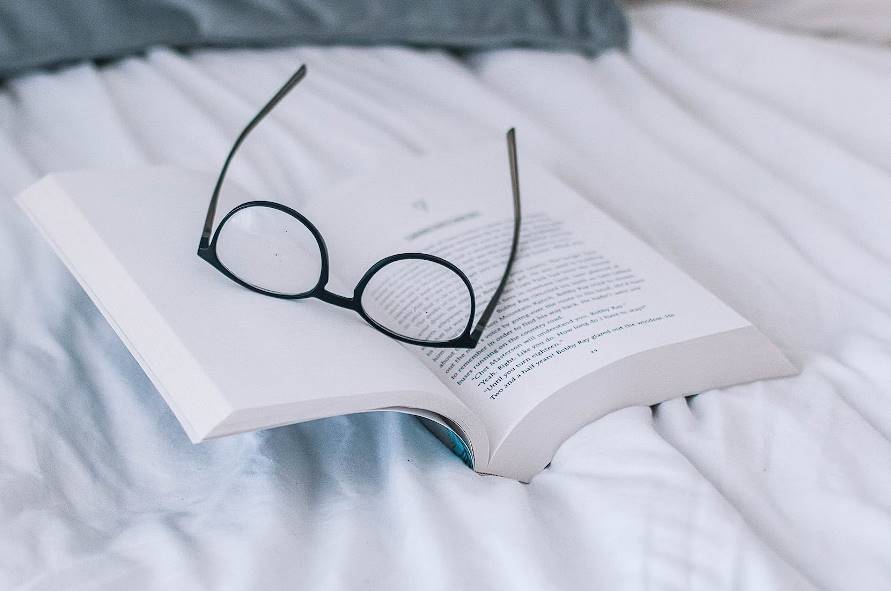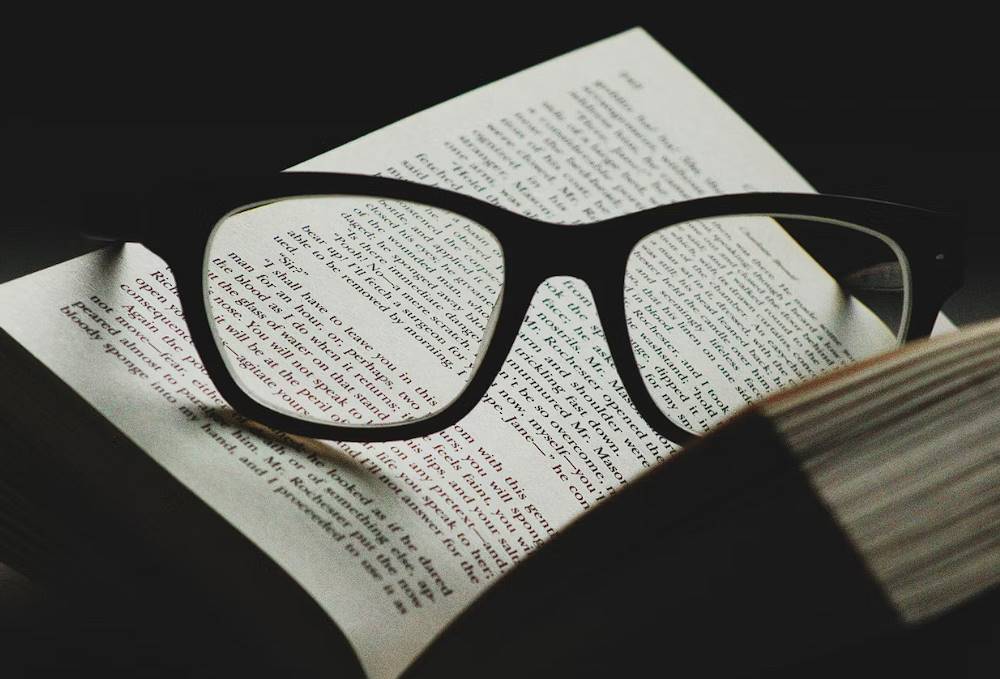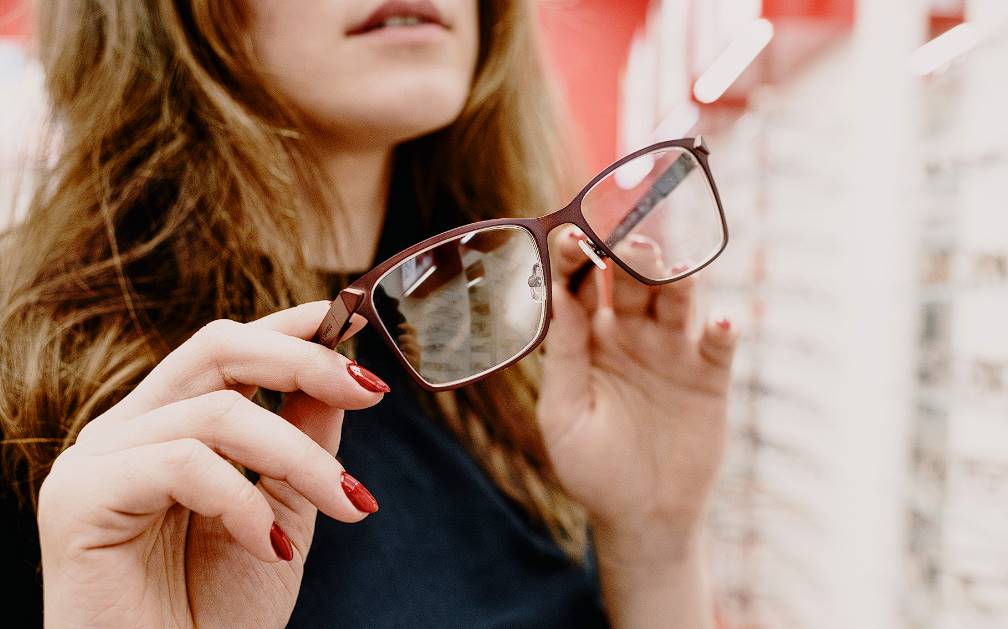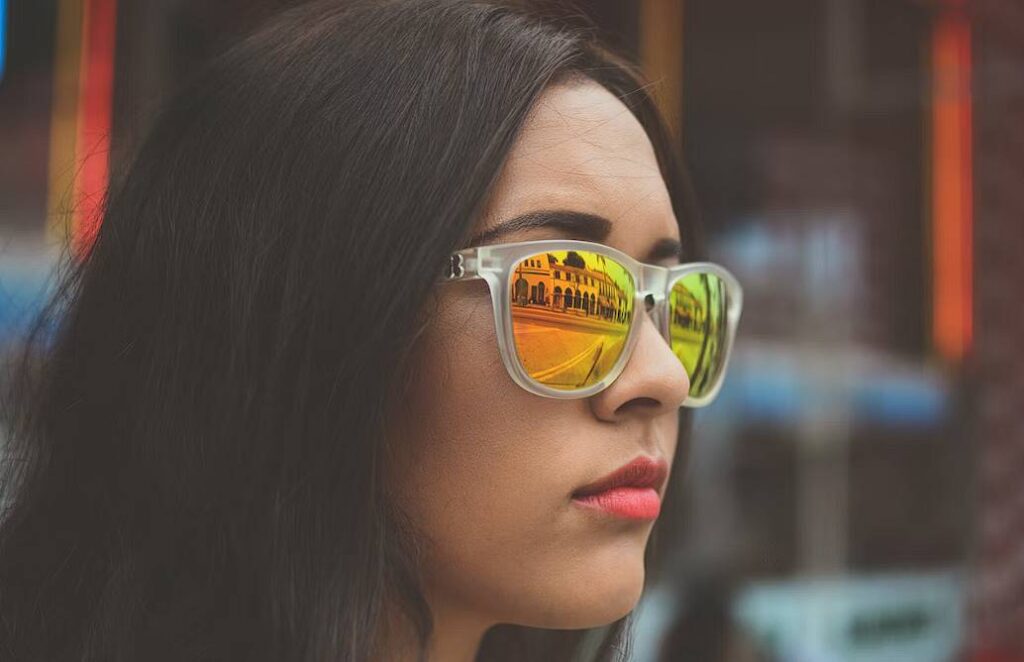Do you feel like you need a break from the computer because your eyes are sore? Do you suffer from headaches after being out in the sun all day? If that's the case, you can be suffering from blue light overexposure.
Excessive exposure to blue light is associated with a variety of negative effects on the eyes.
Unfortunately, there are situations when avoiding blue light entirely is not an option. Fortunately, blue light glasses can shield the wearer from the light and mitigate its effects.
What Is Blue Light?
The section of the visible light spectrum with a very short wavelength and high energy is known as "blue light." Light from the sun and other manmade sources contribute to this type of electromagnetic radiation. Blue light comes from the sun but is also emitted by LED lights, fluorescent bulbs, and digital screens like those found in computers, smartphones, tablets, and televisions, to name a few.
There are positive and negative consequences associated with blue light. Daytime exposure to natural blue light has positive effects on our circadian rhythm, alertness, and mood. It's also essential for keeping your mind and memory sharp.
However, there are potential health risks associated with continuous or excessive exposure to blue light, especially from artificial sources. The effect on people's eyesight is a major issue. Due to its higher intensity and shorter wavelength, blue light is more likely to disperse and cause discomfort to the eyes and other sensory organs. Blurred vision, headaches, and neck or shoulder pain are just some of the symptoms of digital eye strain or computer vision syndrome, which can be exacerbated by extended exposure to blue light.
The disruption of sleep cycles by blue light is another major issue of concern. Interruption of melatonin production, a hormone that controls sleep and wakefulness, can occur when exposed to blue light in the evening or at night. This can cause you to have trouble falling asleep, have poor quality sleep, and feel tired during the day.
Blue light glasses and other techniques to reduce blue light exposure and its possible effects on eye health and sleep have emerged in response to the widespread use of electronic devices and artificial lighting in modern lifestyles.
How Does Blue Light Glasses Work?
Glasses that filter out the blue light emitted by electronic devices including laptops, smartphones, tablets, and LED screens are known as "blue light glasses," "blue light blocking glasses," or "computer glasses." Lenses in these eyewear are treated with a proprietary coating or filter that selectively blocks or filters out blue light.
Blue light glasses are designed to shield your eyes from the detrimental effects of blue light over extended periods of time. Due to its shorter wavelength and higher energy levels, blue light is more likely to produce eyestrain, weariness, and disruptions in sleep patterns than other colours in the visible light spectrum. These glasses assist reduce digital eye strain by filtering out some of the blue light that causes headaches and disrupts sleep.
There are many possibilities for blue light glasses, from prescription to non-prescription. Students, workers, and those with photophobia (an extreme sensitivity to light) are all good candidates for wearing them. In addition to protecting your eyes from blue light, some glasses have anti-glare coatings that make using electronic devices more pleasant on the eyes.
It's worth noting that wearing blue light glasses can help lessen but not entirely remove your exposure to blue light. The quality of the lenses and the particular blue light filtering technology utilised can also affect how well blue light glasses perform. For this reason, it's best to stick with well-known brands or get advice from an ophthalmologist when shopping for blue light glasses to make sure you get the right pair for your eyes.
Advantages of Wearing Blue Light Glasses
Reduced Eye Strain and Fatigue
Wearing blue light-blocking glasses while using electronic devices can reduce the resulting eye strain and weariness. These glasses alleviate symptoms including dryness, redness, and blurred vision by reducing the intensity of light entering the eyes by filtering out a portion of blue light. Those who spend a lot of time in front of digital devices will appreciate this perk because it reduces eye fatigue and improves visual comfort.
Improved Sleep Quality
Melatonin, the hormone that controls sleep, can be disrupted by exposure to blue light, especially in the evening. In order to lessen the disturbance of melatonin production, blue light glasses with their specialised filters can block or limit the quantity of blue light reaching the eyes. People who use these glasses in the hours before bed report better sleep quality and a more normal sleep-wake cycle as a result.
Protection against Macular Degeneration
Macular degeneration, which can cause blindness if left untreated, has been linked to blue light exposure. Blue light glasses have filters that exclude or greatly reduce exposure to the wavelengths of light known to cause damage to the retina over time. These glasses have been shown to reduce the chance of developing macular degeneration and improve long-term eye health in those who regularly wear them.
Enhanced Visual Comfort
When using a computer or other electronic device, blue light glasses can reduce eye strain. They alleviate discomfort and strain on the eyes by decreasing glare, or an excess of brightness or reflection of light. These glasses improve the visual experience by reducing contrast difficulties, making it possible to see digital information for longer periods of time without feeling eye strain or discomfort.
Headache and Migraine Prevention
Those who are already prone to headaches and migraines may find that exposure to blue light makes their condition worse. Blue light glasses, which block or filter out blue light, can reduce the effects of these triggers. By donning these glasses, those who are sensitive to light and suffer from headaches or migraines may find relief and be better able to go about their everyday lives.
For these reasons, blue light glasses should be considered by anyone who spends a lot of time in front of screens or who gets discomfort from being overexposed to blue light. But choose high-quality glasses and go to an eye doctor to make sure you get the best selections for your needs and eye health.
Considerations when Choosing Blue Light Glasses
There are a few things to keep in mind while picking out a pair of blue light glasses:
Quality of the Glasses
Choose blue light glasses made by a renowned brand made from premium materials and equipped with cutting-edge blue light filtering technologies. Try to get a pair of glasses that has been tested to verify that it effectively filters out blue light and conforms to industry standards.
Filtering Technology
Learn about the glasses' specialised blue light filtering technology. It's important to think about your needs and how you'll be using the glasses because different pairs may filter different amounts of blue light. For all-around defence, search for glasses with broad-spectrum blue light protection.
Transparency and Color Distortion
Due to the nature of the filtering technology used, certain pairs of blue light glasses may have a very faint tint. Think on if you want a totally clear lens or whether a tinted one is OK. You should check the glasses' colour distortion to make sure it won't be too distracting.
Prescription Needs
Choose blue light spectacles that may be adjusted to fit your prescription if you need eyewear. If you need prescription glasses that also block harmful blue light, it's best to talk to an eye doctor about your options.
Comfort and Fit
Wearing blue light spectacles for long periods of time should be no problem. Find a pair that doesn't pinch your nose or ears by thinking about the frame's design, weight, and adaptability. To get the most out of your glasses, make sure they fit snugly on your face.
Additional Features
Additional characteristics, like anti-glare coatings, scratch resistance, and UV protection, may be included in some blue light glasses. Look over these options and see if they fit your needs and preferences.
Eye Care Professional Consultation
When shopping for blue light glasses, it's best to get advice from an eye doctor or optometrist. They are trained to evaluate your eyes, advise you on the best course of action, and take care of all your visual issues as a whole.
You can get the best pair of blue light glasses for your needs in terms of protection, comfort, and clarity of vision if you keep these things in mind.
Tips for Buying Blue-Light-Blocking Glasses
- Research Reputable Brands: Try to find a recognisable brand that has built a solid reputation for making effective blue-light blocking glasses. You may learn more about a product's quality and reliability by reading reviews and asking around for suggestions.
- Check for Blue Light Filtering Technology: Learn about the glasses' blue light filtering technology. Try to find glasses with a blue light filter or blocker, ideally effective at wavelengths between 400 and 450 nanometers. Make sure the glasses offer adequate protection from blue light.
- Consider Lens Color: Lens colours for blue-light blocking glasses can range from clear to yellow or amber. Lenses with a yellow or amber tint can improve contrast and minimise eye strain, while clear lenses provide a more natural viewing experience. Pick a shade that appeals to your sense of style and makes you feel at ease.
- Opt for Prescription Options: If you need corrective lenses, you may want to look into blue-light filtering glasses that can be made to fit your specific needs. This will provide you with the corrective lenses you need as well as shield your eyes from harmful blue light.
- Check for UV Protection: While most blue-light glasses only filter out the most harmful wavelengths of visible light, choosing a pair that also blocks UV rays is a good idea. The sun's ultraviolet (UV) rays can damage eyes, therefore it's important to wear protective eyewear.
- Consider Frame Design and Comfort: Make sure the frame is comfy to wear for long periods of time. Choose something that won't weigh you down too much but will hold up well without putting too much pressure on your ears or nose. The temples and nose cushions can be adjusted for a customised fit.
- Verify the Return Policy and Warranty: Always read the fine print of any warranty or return policy offered by a vendor or manufacturer before making a purchase. This ensures the glasses can be returned or exchanged if they don't work out as planned.
- Consult an Eye Care Professional: It's best to see an eye doctor, like an optometrist or ophthalmologist, if you're experiencing any issues with your vision. If you tell them about your eye condition and prescription requirements, they can make specific suggestions.
Start with a cheap set of blue light glasses that you're comfortable with if you're unsure whether or not they'll be helpful to you.
Conclusion
Short-wavelength, high-energy light in the visible range is known as blue light. There are a number of issues that might arise for the eyes from too much blue light. The effects of blue light can be reduced by protective eyewear. During the day, our circadian rhythm, attentiveness, and mood all benefit from exposure to natural blue light. Constant or extensive exposure to blue light, especially from artificial sources, may, however, be harmful to one's health.
Disruption of sleep cycles by blue light can lead to trouble falling asleep, poor sleep quality, and feeling exhausted during the day, and its influence on people's eyesight is a serious concern. In reaction to the increased use of electronic gadgets and artificial lighting, blue light glasses and other methods have arisen to mitigate the negative effects of blue light on eye health and sleep. These glasses are made to protect the eyes from the long-term impacts of blue light and block the light emitted by electronic devices. You can get blue light glasses with or without a prescription, and some of them even feature anti-glare coatings. Blue light glasses have numerous health benefits, including mitigation of eye strain and fatigue, enhancement of sleep quality, prevention of macular degeneration, enhancement of visual comfort, and alleviation of headaches and migraines.
These glasses are great for people who spend long periods of time in front of digital gadgets since their filters either completely block or significantly limit exposure to the wavelengths of light known to cause damage to the retina over time. They can also lessen glare and contrast issues, allowing you to view digital material for longer without experiencing any discomfort or strain in your eyes.
Content Summary
- Do you feel like you need a break from the computer because your eyes are sore?
- Do you suffer from headaches after being out in the sun all day?
- If that's the case, you can be suffering from blue light overexposure.
- Excessive exposure to blue light is associated with a variety of negative effects on the eyes.
- Unfortunately, there are situations when avoiding blue light entirely is not an option.
- Fortunately, blue light glasses can shield the wearer from the light and mitigate its effects.
- The section of the visible light spectrum with a very short wavelength and high energy is known as "blue light."
- Light from the sun and other manmade sources contribute to this type of electromagnetic radiation.
- Blue light comes from the sun but is also emitted by LED lights, fluorescent bulbs, and digital screens like those found in computers, smartphones, tablets, and televisions, to name a few.
- There are positive and negative consequences associated with blue light.
- Daytime exposure to natural blue light has positive effects on our circadian rhythm, alertness, and mood.
- It's also essential for keeping your mind and memory sharp.
- However, there are potential health risks associated with continuous or excessive exposure to blue light, especially from artificial sources.
- The effect on people's eyesight is a major issue.
- Due to its higher intensity and shorter wavelength, blue light is more likely to disperse and cause discomfort to the eyes and other sensory organs.
- Blurred vision, headaches, and neck or shoulder pain are just some of the symptoms of digital eye strain or computer vision syndrome, which can be exacerbated by extended exposure to blue light.
- The disruption of sleep cycles by blue light is another major issue of concern.
- Interruption of melatonin production, a hormone that controls sleep and wakefulness, can occur when exposed to blue light in the evening or at night.
- This can cause you to have trouble falling asleep, have poor quality sleep, and feel tired during the day.
- Blue light glasses and other techniques to reduce blue light exposure and its possible effects on eye health and sleep have emerged in response to the widespread use of electronic devices and artificial lighting in modern lifestyles.
- Glasses that filter out the blue light emitted by electronic devices including laptops, smartphones, tablets, and LED screens are known as "blue light glasses," "blue light blocking glasses," or "computer glasses."
- Lenses in these eyewear are treated with a proprietary coating or filter that selectively blocks or filters out blue light.
- Blue light glasses are designed to shield your eyes from the detrimental effects of blue light over extended periods of time.
- Due to its shorter wavelength and higher energy levels, blue light is more likely to produce eyestrain, weariness, and disruptions in sleep patterns than other colours in the visible light spectrum.
- These glasses assist reduce digital eye strain by filtering out some of the blue light that causes headaches and disrupts sleep.
- There are many possibilities for blue light glasses, from prescription to non-prescription.
- Students, workers, and those with photophobia (an extreme sensitivity to light) are all good candidates for wearing them.
- In addition to protecting your eyes from blue light, some glasses have anti-glare coatings that make using electronic devices more pleasant on the eyes.
- It's worth noting that wearing blue light glasses can help lessen but not entirely remove your exposure to blue light.
- The quality of the lenses and the particular blue light filtering technology utilised can also affect how well blue light glasses perform.
- For this reason, it's best to stick with well-known brands or get advice from an ophthalmologist when shopping for blue light glasses to make sure you get the right pair for your eyes.
- Wearing blue light-blocking glasses while using electronic devices can reduce the resulting eye strain and weariness.
- These glasses alleviate symptoms including dryness, redness, and blurred vision by reducing the intensity of light entering the eyes by filtering out a portion of blue light.
- Those who spend a lot of time in front of digital devices will appreciate this perk because it reduces eye fatigue and improves visual comfort.
- Melatonin, the hormone that controls sleep, can be disrupted by exposure to blue light, especially in the evening.
- In order to lessen the disturbance of melatonin production, blue light glasses with their specialised filters can block or limit the quantity of blue light reaching the eyes.
- People who use these glasses in the hours before bed report better sleep quality and a more normal sleep-wake cycle as a result.
- Macular degeneration, which can cause blindness if left untreated, has been linked to blue light exposure.
- Blue light glasses have filters that exclude or greatly reduce exposure to the wavelengths of light known to cause damage to the retina over time.
- These glasses have been shown to reduce the chance of developing macular degeneration and improve long-term eye health in those who regularly wear them.
- When using a computer or other electronic device, blue light glasses can reduce eye strain.
- They alleviate discomfort and strain on the eyes by decreasing glare, or an excess of brightness or reflection of light.
- These glasses improve the visual experience by reducing contrast difficulties, making it possible to see digital information for longer periods of time without feeling eye strain or discomfort.
- Those who are already prone to headaches and migraines may find that exposure to blue light makes their condition worse.
Frequently Asked Questions
You need not fear; Blue Light glasses can and should be used continuously. There are no drawbacks to this. You can use it for however long you like without risk. In fact, you should always protect your eyes against exposure to Blue Light, whether from natural or artificial sources.
Excessive exposure to visible blue light can also cause eyestrain, according to the research. Sixty-nine percent or more of people who regularly use computers report experiencing eye strain.
Wearing glasses that filter out blue light is recommended whenever using a screen or equipment that produces this type of light. A good pair of blue light blocking lenses will help you maintain healthy eyes and lessen the effects of digital screen time on your eyes.
Wearing glasses designed to filter out blue light has been shown to alleviate fatigue, protect the eyes, and improve sleep quality.
Everything takes on a more muted yellow tone thanks to the blue-tinted lenses. The skin's melanopsin, a photoreceptor that signals the body whether it is day or night, is unprotected by blue cut lenses, which is another drawback.

